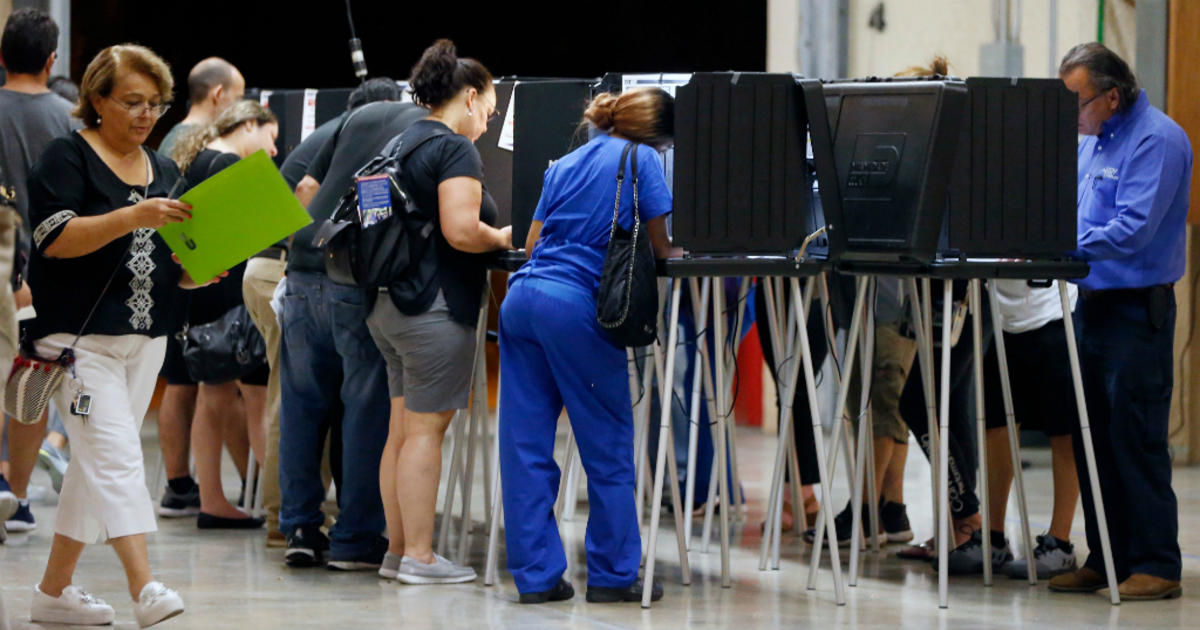Board Votes To Increase Florida Universities' Tuition
ORLANDO (CBSMiami/AP) – Florida's Board of Governors voted Thursday that the state's public universities should be allowed to raise their tuition.
Students will face tuition increases of 9 percent to 15 percent — the highest allowed by law — after a sharply divided Board of Governors approved the requests over Gov. Rick Scott's objections.
The panel considered the increases on a school-by-school basis, often taking multiple roll calls before deciding on a figure.
Most of the increases were approved by 9-7 margins. The board ended up approving the full increases requested by six of the 11 active universities, but reduced proposals from the others by one to three percentage points.
It was a defeat for Scott, who spoke out against raising the rates when he appeared before the board on Tuesday. He said he was disappointed.
"Tuition rates have risen 71 percent over the past four years and graduates are facing unprecedented levels of debt," Scott said in a statement. "We can't continue on this path."
University officials, though, say the increases will still leave Florida tuition rates among the nation's lowest and that they are needed to at least partly offset a $300 million budget cut that Scott and Legislature ordered for the State University System.
The board's newest member, Florida Student Association Chairman Cortez Whatley, voted for the increases. Whatley, who is student body president at the University of Central Florida, where the meeting was held, said it was a difficult decision and that continuing to shift the cost burden to students cannot be sustained.
"What's even more unsustainable is thinking that these universities are going to be able to continue to perform at maximum efficiencies on a shoestring budget," Whatley said. "This is tough on families, but we have to be pro-education and looking at the long term."
He noted that all except one of his fellow student body presidents supported some form of higher tuition.
The board approved increases of 9 percent for the University of Florida and 11 percent for the University of South Florida, which is what their boards of trustees had requested. Florida Gulf Coast University asked for 14 percent but got 12 percent.
The other schools sought the full 15 percent allowed by law each year. But only Central Florida,Florida Atlantic University, Florida International University and New College received that much.
The board reduced 15 percent requests from Florida A&M University to 12 percent, from the University of North Florida and Florida State University to 13 percent and from the University of WestFlorida to 14 percent.
No tuition rate was set for the new Florida Polytechnic University, which is not expected to open until fall 2013.
The board also approved increases in capital improvement fees that pay for student service facilities such as unions, wellness centers and recreation areas by $60 a year for a student taking a normal load of 30 credit hours at nine of the universities. The increase will be $41.40 at New College.Florida State did not request a fee increase.
Florida State President Eric Barron was perplexed by the board's decision to give his school a smaller tuition increase than some of the others although it is one of the state's top two research universities.
"That's an amazing message to the faculty and the students," Barron said.
It follows Scott's veto earlier this year of a bill that would have allowed Florida State and the University of Florida to exceed the 15 percent annual tuition cap to help them maintain or improve their standing among the nation's top research schools.
Board Chairman Dean Colson acknowledged the tuition approval process was "not pretty."
The 17-member board includes eight members appointed by two former governors, Charlie Crist and Jeb Bush. Scott appointed five members who voted against the increases in most cases. The exception was Ava Parker, who initially was appointed by Bush and reappointed by Crist and Scott. She voted for three of the tuition increases.
The other three board members are not gubernatorial appointees. They are student representative Whatley and faculty representative Richard Yost, a University of Florida professor, who both voted for the increases, and Education Commissioner Gerard Robinson, who voted against them.
(TM and © Copyright 2012 CBS Radio Inc. and its relevant subsidiaries. CBS RADIO and EYE Logo TM and Copyright 2012 CBS Broadcasting Inc. Used under license. All Rights Reserved. This material may not be published, broadcast, rewritten, or redistributed. The Associated Press contributed to this report.)



